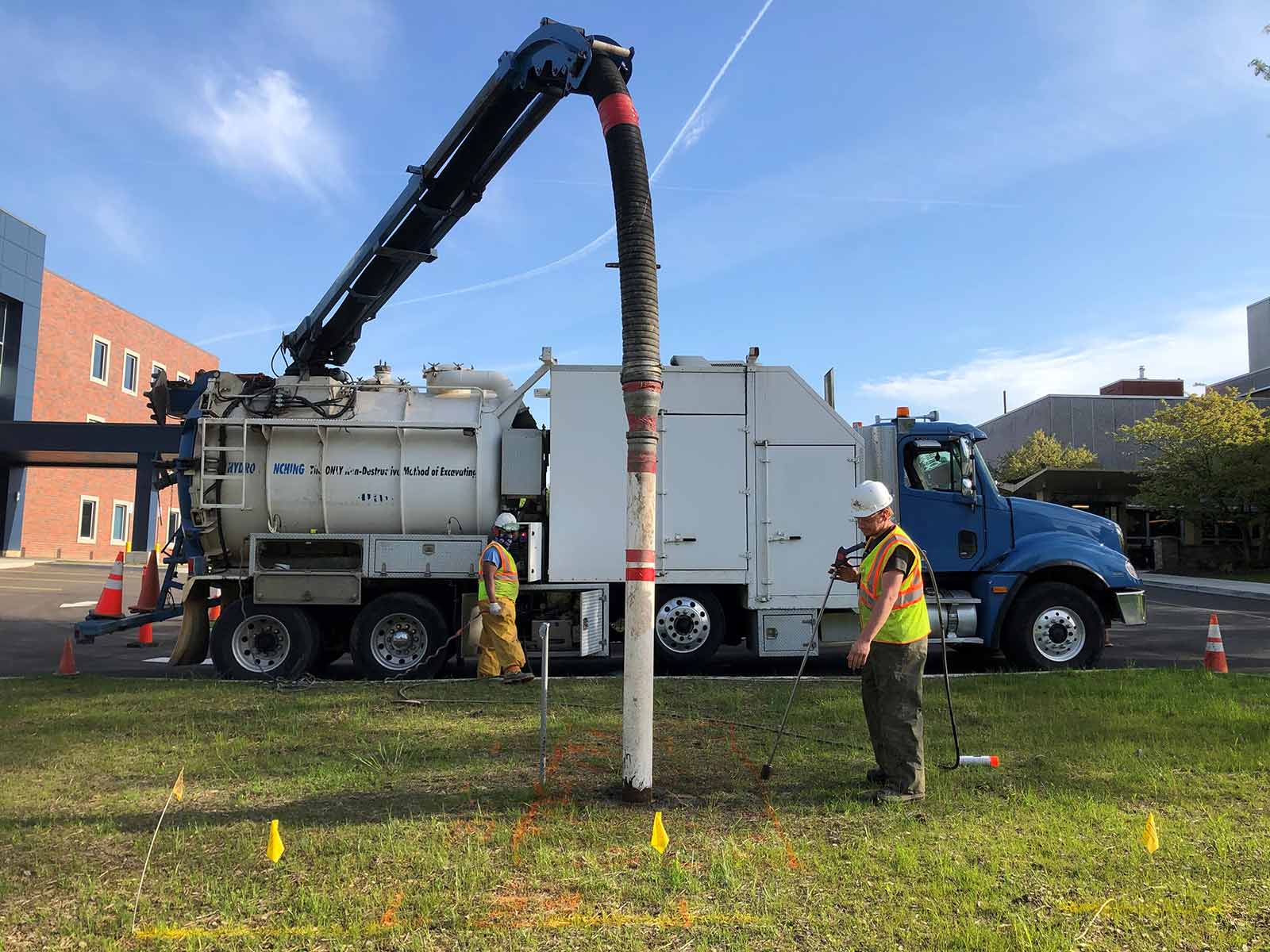Comprehensive Excavation Methods: Grasping the Principles for Success
The cautious preparation, specific implementation, and precise interest to information called for in excavation tasks require an extensive method that incorporates different fundamental aspects. The true mastery exists not merely in understanding these principles but in effortlessly integrating them to navigate the intricacies of excavation jobs with skill.
Understanding Excavation Task Preparation

The first phase of any excavation task is the preparation stage, where vital decisions are made that can substantially impact the outcome of the job. Recognizing the task extent, timeline, and budget restrictions is vital for creating a thorough excavation plan that guarantees the project's success.
One key element of excavation job planning is the advancement of a comprehensive timeline that lays out the series of turning points, tasks, and deadlines. This timeline functions as a roadmap for the task team, allowing them to track development and make essential modifications to make sure the job remains on schedule. Additionally, a distinct budget that accounts for all costs, consisting of equipment rental, labor expenses, and materials, is important for preventing cost overruns and delays. By thoroughly taking into consideration all these elements during the preparation phase, excavation jobs can be implemented efficiently and successfully, bring about successful outcomes.
Soil Analysis and Site Analysis
Performing detailed soil evaluation and website examination is an important action in the preparation phase of any excavation project. Soil analysis includes determining the make-up, framework, and buildings of the soil at the excavation site. This info is important for comprehending the dirt's bearing capacity, wetness content, and potential for disintegration, which are essential consider determining the excavation approaches and devices needed for the task.
Site evaluation exceeds dirt evaluation and incorporates a broader evaluation of the general site problems. This assessment consists of recognizing any kind of potential dangers, such as underground utilities, ecological issues, or unsteady terrain, that might influence the excavation process. By extensively assessing the website, job managers can develop effective excavation methods that prioritize safety and security, effectiveness, and environmental management.
Making use of innovative innovations like ground-penetrating radar, soil sampling, and drone surveys can improve the accuracy and efficiency of soil evaluation and site analysis. Spending time and sources in these initial actions can inevitably conserve time and prevent pricey hold-ups or difficulties throughout the excavation process.
Tools Option and Usage
Reliable excavation tasks count heavily on strategic devices option and use to ensure optimum performance and productivity. Selecting the right tools for the job is critical in optimizing performance and reducing downtime. Aspects such as the kind of soil, depth of excavation, and project extent play a significant function in establishing one of the most appropriate tools for the task at hand.

Along with choosing the ideal tools, appropriate application is key to task success. Operators must be trained to manage the devices securely and efficiently - excavating ohio. Routine maintenance checks and timely repair services help avoid breakdowns and guarantee regular performance throughout the project
Safety Measures and Rules Compliance
In the realm of excavation jobs, focusing on precaution and compliance with regulations is paramount to guaranteeing a safe and secure and lawfully sound operational environment. Safety and security steps incorporate a series of methods, including carrying out comprehensive website analyses, carrying out proper signage and barriers, and supplying appropriate security training for all employees included in the excavation process. Adherence to regulations, such as try this website OSHA requirements in the USA, ensures that the excavation task meets the essential requirements to shield employees, bystanders, and the surrounding atmosphere.

Surveillance Development and Adjusting Approaches
Just how can forecast supervisors effectively track the innovation of excavation projects and adapt their techniques Click This Link appropriately to enhance results? Tracking progress is necessary for ensuring that excavation projects remain on track and satisfy due dates. Task managers can utilize numerous devices and techniques to track development, such as daily report card, regular website examinations, and advanced monitoring innovations like drones and GPS tracking systems. By constantly monitoring the task's development, managers can recognize any type of prospective go to these guys delays or problems early and take proactive actions to resolve them.

Verdict
To conclude, understanding the basics of extensive excavation strategies is important for the success of any task. By understanding project preparation, assessing dirt and website problems, picking suitable equipment, abiding with safety regulations, and keeping track of development, project managers can make sure a smooth and efficient excavation process. Implementing these methods will lead to effective end results and decrease possible risks or obstacles during the excavation job.
The initial stage of any excavation job is the planning phase, where essential choices are made that can significantly impact the result of the job. Understanding the job timeline, scope, and spending plan restraints is essential for producing an extensive excavation plan that makes certain the project's success.
Exactly how can project supervisors properly track the innovation of excavation tasks and adjust their approaches as necessary to enhance end results? By carefully checking development and being prepared to adapt strategies, project managers can improve the total success of excavation projects.
By understanding job planning, assessing dirt and website conditions, choosing suitable tools, complying with safety and security regulations, and monitoring progression, task managers can ensure a reliable and smooth excavation process.